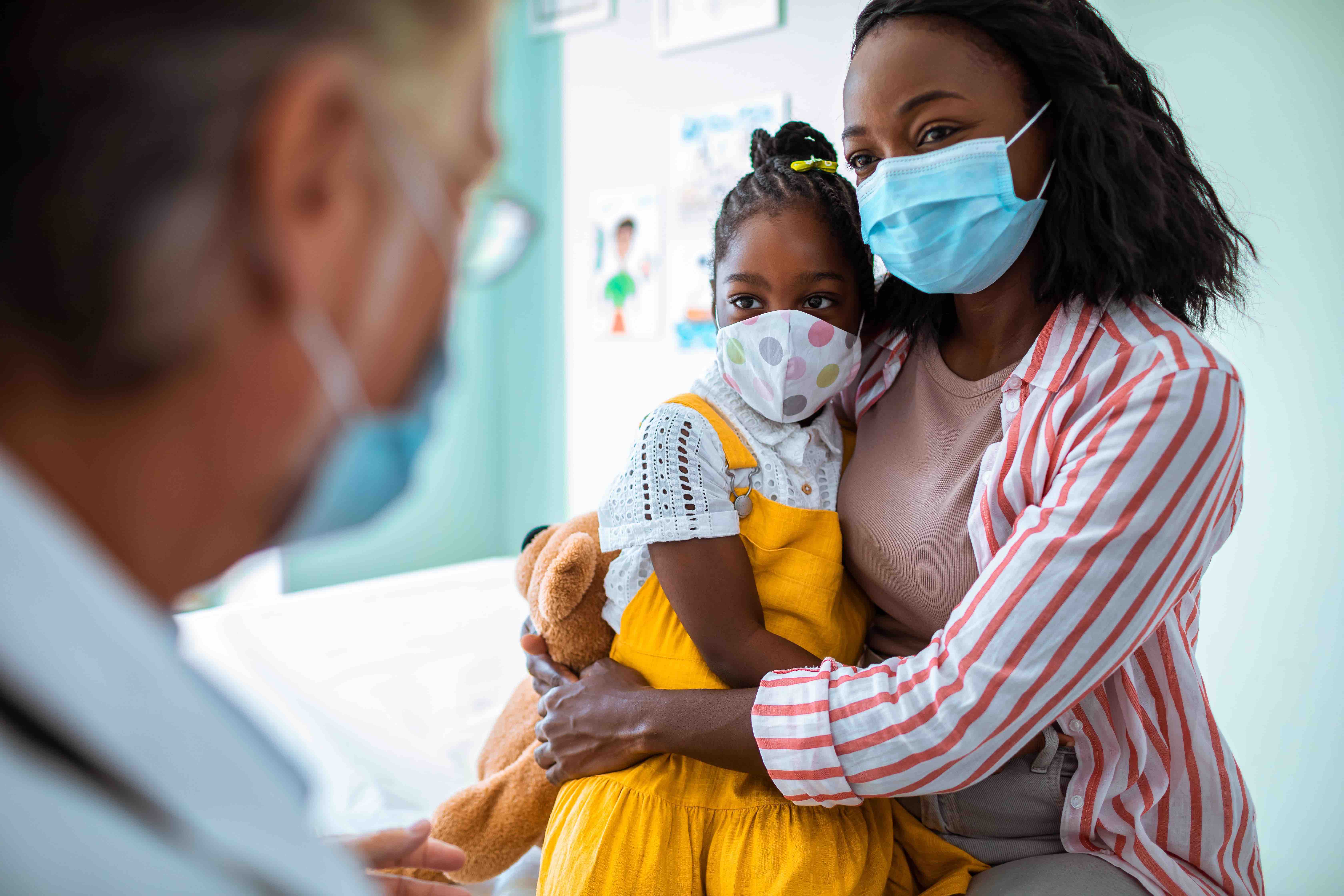| | | | | | | Presented By PhRMA | | | | Vitals | | By Caitlin Owens ·Apr 07, 2021 | | Good morning. Join Axios' Niala Boodhoo, Sara Goo and Hope King tomorrow at 12:30pm ET for a virtual event on Asian American identity and politics, featuring activists Linh Nguyen, Amanda Nguyen and Michigan state Sen. Stephanie Chang. Today's word count is 882, or a 3-minute read. | | | | | | 1 big thing: Vaccine shopping can be surprisingly easy |  Reproduced from KFF COVID-19 Vaccine Monitor; Chart: Axios Visuals Many coronavirus vaccination sites are making it easy for people to shop for the vaccine they want. Why it matters: Public health officials have advised for months that the best vaccine to get is the one that's first available. But giving people a choice about which shot to get could help improve overall vaccination rates, especially among more hesitant Americans. By the numbers: Johnson & Johnson's one-shot vaccine is particularly popular with people who say they want to wait and see how the vaccine is working for others before getting it, according to recent KFF polling. - Among Americans open to getting vaccinated, only 28% said they had a strong preference of which shot they want, and nearly half said they didn't have a preference.
- Similar shares said they would "definitely" get each of the three vaccines authorized for use in the U.S., although J&J had a slight edge over Pfizer and Moderna's two-dose vaccines.
- Among those with a brand preference, about a quarter said they prefer a single-dose vaccine.
Zoom in: CVS lists which vaccine is being offered at all of its locations administering shots. - "We want people to know what they'll be receiving, and prepare accordingly," CVS spokesperson T.J. Crawford said.
- Publix administers both the Moderna and Johnson & Johnson vaccines, but offers specific "booking opportunities" for each throughout the week.
- Vaccine Finder, a website that helps people find open vaccine appointments, allows people to select which vaccines they want to search for.
What they're saying: Giving people the option to sign up for the vaccine they want has its tradeoffs. On the one hand, it could increase overall vaccine uptake. - It could also help overcome certain barriers to getting vaccinated for certain populations.
- But if people delay getting vaccinated to wait for the shot they want, that could be a bad thing.
Go deeper. |     | | | | | | 2. Kids' illnesses came weeks behind COVID peaks |  | | | Illustration: Sarah Grillo/Axios | | | | Outbreaks of the respiratory infection known as MIS-C, which affects children who have contracted COVID-19, trailed a few weeks behind the coronavirus, ultimately following its path from cities out into more rural areas, according to a new study published in JAMA Pediatrics. Why it matters: Although children are at a very low risk for severe COVID-19 infections, the lingering effects of MIS-C can be more serious, Axios' Marisa Fernandez reports. By the numbers: The CDC has identified 3,185 cases of MIS-C since the onset of the pandemic. 36 children have died. Details: The JAMA study found that peaks of MIS-C infection followed two to five weeks behind peaks in COVID-19 cases. - About 60% of the children in that analysis were admitted to intensive care units. Common symptoms included abdominal pain, vomiting, diarrhea, well as skin rash, low blood pressure and heart problems.
- Most of those cases stemmed from asymptomatic COVID-19 infections.
The bottom line: Widespread vaccination is making the pandemic far less deadly, but rising COVID-19 cases still have consequences. |     | | | | | | 3. More evidence of COVID's effect on the brain | | A third of patients diagnosed with the coronavirus had also experienced a psychiatric or neurological illness as of six months later, according to a new study published yesterday in The Lancet Psychiatry. Between the lines: Mood disorders like anxiety and depression were especially common, but researchers also found lower rates of serious complications like strokes and dementia, STAT reports. - 1 in 8 of the patients were diagnosed for the first time with the illness.
- The study looked at the prevalence of 13 brain disorders. Anxiety, mood and substance use disorders were most common.
- Patients with very severe coronavirus infections were more likely to develop complications like stroke or dementia, but patients who later developed anxiety or depression had illnesses of varying degrees of severity.
What they're saying: "We need urgent research to better understand how and why does this occur in patients with COVID-19 and how they can be treated and [how to] prevent it," Max Taquet, a clinical fellow in psychiatry at the University of Oxford and a study co-author, told reporters. - "But we think that regardless of the explanation, health services need to be prepared for the increased demand that this data is showing."
- The authors also speculated that the stress of having COVID, and the subsequent disruption, could contribute to psychiatric illnesses.
|     | | | | | | A message from PhRMA | | Biopharma is committed to being a part of the solution | | |  | | | | As we usher in a new administration and Congress, there are many things on which we can all agree, like building a more just, equitable society. | | | | | | 4. The next generation of vaccines is coming | | More coronavirus vaccines are in varying stages of development, including ones that would be more convenient or more potent, NPR reports. Why it matters: Researchers are trying to create an ideal vaccine, which would be "administered in a single shot, be room temperature stable, work in all demographics and, even pushed beyond that, ideally be self-administered," Deborah Fuller, a vaccine researcher at the University of Washington, told NPR. Where it stands: Some of these next-generation vaccines are already being tested and could be ready for distribution within the next year or so. - Some replace injections with pills or nasal sprays, while others prompt the same or better immune response as existing vaccines, but from a lower dose.
|     | | | | | | 5. Catch up quick |  | | | Illustration: Aïda Amer/Axios | | | | President Biden announced Tuesday that he is moving up the deadline for states to make all American adults eligible for a coronavirus vaccine to April 19. Biden also said Tuesday that he hopes the U.S. will have ample COVID-19 vaccine supply for domestic use by this summer and enough doses to share the inventory with other countries. Nearly 80% of teachers, school staff and childcare workers had received at least one dose of the coronavirus vaccine by the end of March, the Centers for Disease Control and Prevention said Tuesday. Texas Gov. Greg Abbott signed an executive order on Tuesday that bans state government and some private business from requiring coronavirus vaccine passports to access services. California will aim to fully reopen its economy on June 15 if COVID-19 hospitalizations remain low and vaccine supplies adequately cover people ages 16 and older, Gov. Gavin Newsom (D) announced Tuesday. Brazil confirmed more than 4,000 COVID-19 deaths in a 24-hour period for the first time on Tuesday, the health ministry announced. |     | | | | | | A message from PhRMA | | We are committed to being a part of the solution | | |  | | | | America's biopharmaceutical companies are committed to ending the pandemic by: - Continuing to develop treatments and vaccines to combat COVID-19,
- Working closely with governments, insurers and others to make sure vaccines and treatments are accessible and affordable.
| | | | This newsletter is written in Smart Brevity®. Learn how your team can communicate in the same smart, clear style with Axios HQ. | | | | Axios thanks our partners for supporting our newsletters.
Sponsorship has no influence on editorial content. Axios, 3100 Clarendon Blvd, Suite 1300, Arlington VA 22201 | | | You received this email because you signed up for newsletters from Axios.
Change your preferences or unsubscribe here. | | | Was this email forwarded to you?
Sign up now to get Axios in your inbox. | | | | Follow Axios on social media:    | | | | | |






No comments:
Post a Comment